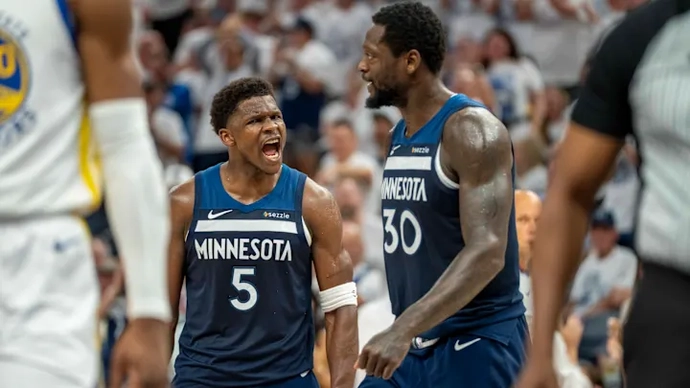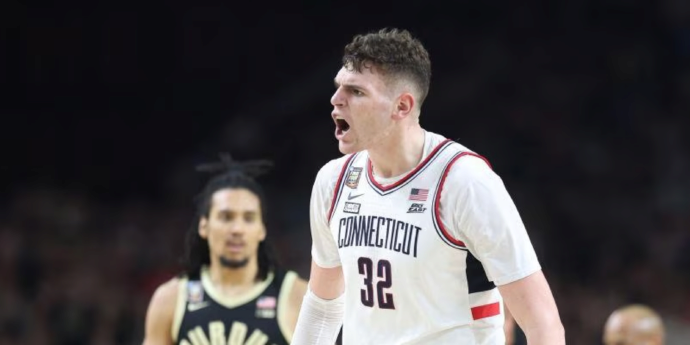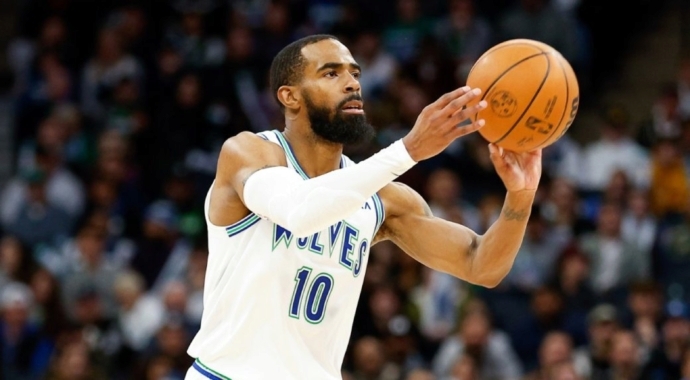Anthony Edwards’ meteoric rise
in the NBA continues relentlessly. The 23-year-old Minnesota
Timberwolves superstar has added another chapter to his burgeoning
playoff legacy, leading his team to a 4-1 series victory over the
Golden State Warriors in the Western Conference Semifinals. This
triumph not only propels the Timberwolves to their second
consecutive Western Conference Finals but also reinforces Edwards’
growing reputation as the league’s premier “legend
killer.”
The term “legend killer” may
have been used in jest by fans and analysts, but it’s becoming more
apt with each passing series. Edwards is carving out one of the
most impressive early playoff resumes in recent memory, routinely
stepping up against the game’s brightest stars and emerging
victorious.
Slaying giants and legends is becoming a playoff
tradition for Edwards
Edwards’ postseason journey
reads like a who’s who of NBA royalty. Last year, he spearheaded
the Timberwolves’ stunning run through the Western Conference,
eliminating a Phoenix Suns team led by future Hall of Famers Kevin
Durant and Devin Booker. In the following round, they went
toe-to-toe with reigning MVP Nikola Jokić and the defending
champion Denver Nuggets – and prevailed.
This season has followed a
similar narrative. In the first round, Edwards and the Wolves
dispatched the Los Angeles Lakers in five games. Edwards outdueled
both LeBron James and Luka Doncic on both ends of the floor and
delivering clutch baskets in high-pressure moments.
Now, in the semifinals, he’s
taken down a Warriors team that boasted championship pedigree and
playoff-tested veterans in Jimmy Butler and Draymond Green – and
would have had Stephen Curry, were it not for injury.
It’s no wonder the nickname
“legend killer” has started to stick. Edwards is not just winning
playoff series; he’s ending runs and ushering in a new era of
stardom. Few players his age have compiled such an impressive list
of postseason victims – and he’s doing it as the unquestioned
leader of a franchise that hadn’t been to the Conference Finals in
20 years before his arrival.
Golden State’s fortunes took a
major hit just minutes into Game 1 when Stephen Curry pulled up
lame, clutching his left hamstring. The team initially called it
“tightness,” but subsequent scans revealed a strain that would
sideline the two-time MVP for the remainder of the
series.
Curry’s absence was devastating.
In Game 1, the Warriors managed to win despite him being out for
the majority of the game, and Golden State was within striking
distance. But without him, the Warriors lacked spacing, cohesion,
and a consistent scoring threat. Butler, whom the Warriors acquired
midseason for a late title push, averaged a decent amount of points
in the series but struggled to find rhythm without Curry drawing
double teams. Draymond Green’s defensive prowess and playmaking
were neutralized by Minnesota’s size and physicality.
Minnesota, meanwhile, smothered
Golden State with a vaunted defense led by Jaden McDaniels, Rudy
Gobert, and Edwards. The Wolves’ game plan was simple yet
effective: deny Butler clean looks, collapse on drives, and force
role players to beat them. Brandin Podziemski and Buddy Hield were
rather inconsistent, while Jonathan Kuminga, though promising,
lacked the polish to carry the scoring load for the entire series.
The Warriors ultimately lost four straight games after taking the
opener.
Timberwolves’ strategic mastery
Minnesota’s resurgence is as
much about front-office vision as it is about Edwards’ emergence.
The franchise made a controversial decision last summer, trading
long-time star Karl-Anthony Towns – the face of the franchise for
nearly a decade – to the New York Knicks in exchange for Julius
Randle and Donte DiVincenzo.
Initially panned as an
overreaction to last year’s Conference Finals loss, the move has
aged like fine wine. Randle brought a rugged interior presence and
a scorer’s mindset that perfectly complements Rudy Gobert’s
defense-first approach. In these playoffs, Randle has arguably been
playing the best basketball of his life, often bullying smaller
defenders in the post while spacing the floor just enough to allow
Edwards room to operate.
DiVincenzo, a tenacious defender
and underrated shooter, has been an x-factor despite struggling a
bit in the playoffs. He has consistently hit timely threes while
guarding opposing guards with a relentless motor. His chemistry
with Edwards has flourished, allowing the Wolves to maintain
intensity on both ends without sacrificing floor
spacing.
Add in the steady leadership of
Mike Conley and the rim protection of Gobert and Naz Reid off the
bench and the perimeter defense by McDaniels and Nickeil
Alexander-Walker, and you’ve got one of the most well-balanced
teams left in the playoffs.
With this series win, the
Timberwolves have secured their second straight appearance in the
Western Conference Finals – a feat that once seemed unimaginable
for a franchise long plagued by mediocrity. They fell to Dallas in
last year’s WCF, but the lessons from that loss are clearly paying
off.
This version of the Wolves is
deeper, more experienced, and far more adaptable. They’ve shown
they can win gritty, defensive battles or shoot it out when the
game opens up. Coach Chris Finch has masterfully balanced rotations
and drawn up sets that accentuate Edwards’ strengths while keeping
Randle, Gobert, and DiVincenzo involved.
The next step now is breaking
through to the NBA Finals – something no Timberwolves team has ever
accomplished.
Being the ‘face of the league’
As the NBA’s long-standing icons
gradually wind down their careers, the league is searching for its
next torchbearer. While players like Jayson Tatum, Luka Dončić, and
Shai Gilgeous-Alexander are all in the mix, few have made as loud a
postseason statement as Anthony Edwards.
His playoff numbers — 27.4
points, 6.5 rebounds, 5.6 assists per game — don’t just tell the
story of a rising superstar, they scream franchise cornerstone and
future MVP. More importantly, Edwards has embraced the spotlight,
asking for it and owning the pressure of delivering wins against
the best in the world.
He’s charismatic, fiercely
competitive, and fearless. His ability to elevate his game in the
postseason, rise above elite opponents, and close out games has
drawn comparisons to legends of the past. And with every “legend”
he defeats, Edwards inches closer to becoming one
himself.
Anthony Edwards isn’t just
adding to his playoff resume — he’s building a legacy. One
legendary opponent at a time.
And if the “legend killer” keeps
this up, the next generation of NBA stars might be defined by who
manages to take him down.



